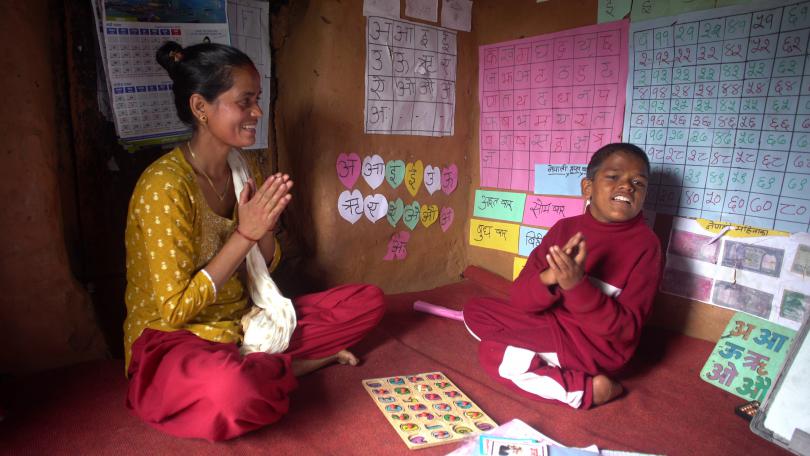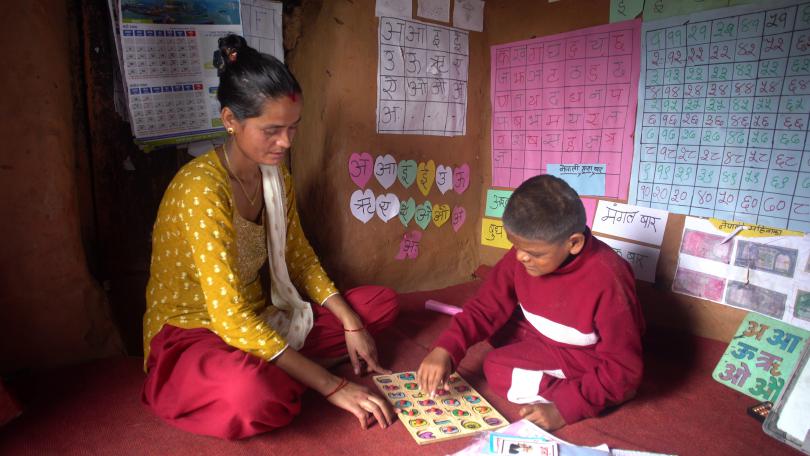School-at-Home initiative: Bringing education close to children with disability

“Nabin is not like other children,” shares, Kamala, Nabin’s mother, “his disability restricts him of going to school, and the schools here are not disability friendly. That’s why I worry about his future.” Kamala narrates that despite her aspiration to send her 14 years old son Nabin to school, the stigma around disability, and structural barriers in school is the reason why Nabin cannot go to school.
But her concerns were answered when the social mobilizers from Social Service Center Nepal (SOSEC), local partner of Save the Children Nepal’s ‘SAHAYATRA’ project connected her with the ‘School at Home’ initiative. “At first, I was doubtful, as I wondered why would teachers come to our house to teach Nabin? But then, as we welcomed the teacher to our house, I saw how much Nabin enjoyed the classes,” shares, Kamala with a smile.

Nabin (14) proudly shares that he can count till 10 and can also identify the alphabets. He shares that, before he thought ‘he had no future. But things have changed now.’ He looks at his mother and tells her, “You don’t need to worry about me now, I can study now.” His mother smiles, and nods in acknowledgement. As Nabin fiddles with the textbooks and copies, his teacher, Bishnu, who has been teaching Nabin for the past three years goes through her teaching checklist. “At first it was difficult for Nabin, and I could empathize as he had never been exposed to teaching or learning. It took us some time, but then he started trusting me. He loves the extra curriculum activities that we do, he enjoys singing and dancing,” explains Bishnu.
The ‘School-at-Home’ initiative is designed to ensure that children, especially with special needs are provided with targeted education and learning tools, and focused interventions to develop their cognitive and behavioral skills. Currently the action is being piloted in Dailekh through SOSEC. Furthermore, activation of the ‘School-at-Home’ model also supports with visible behavioral changes.

According to Bishnu, Nabin is more attentive, has control over his anger, and communicates with confidence. Skills which were not fully developed in the initial period of teaching. “Most importantly, he has become more self-aware, and can distinguish between right and wrong.” Bishnu gives an example, “before, he didn’t like washing hands. But not he makes sure that he washes hand before and after eating, going to the toilet, or after coming back home. He even reminds his mother and siblings about the importance of handwashing,” shares the proud teacher with a smile.
